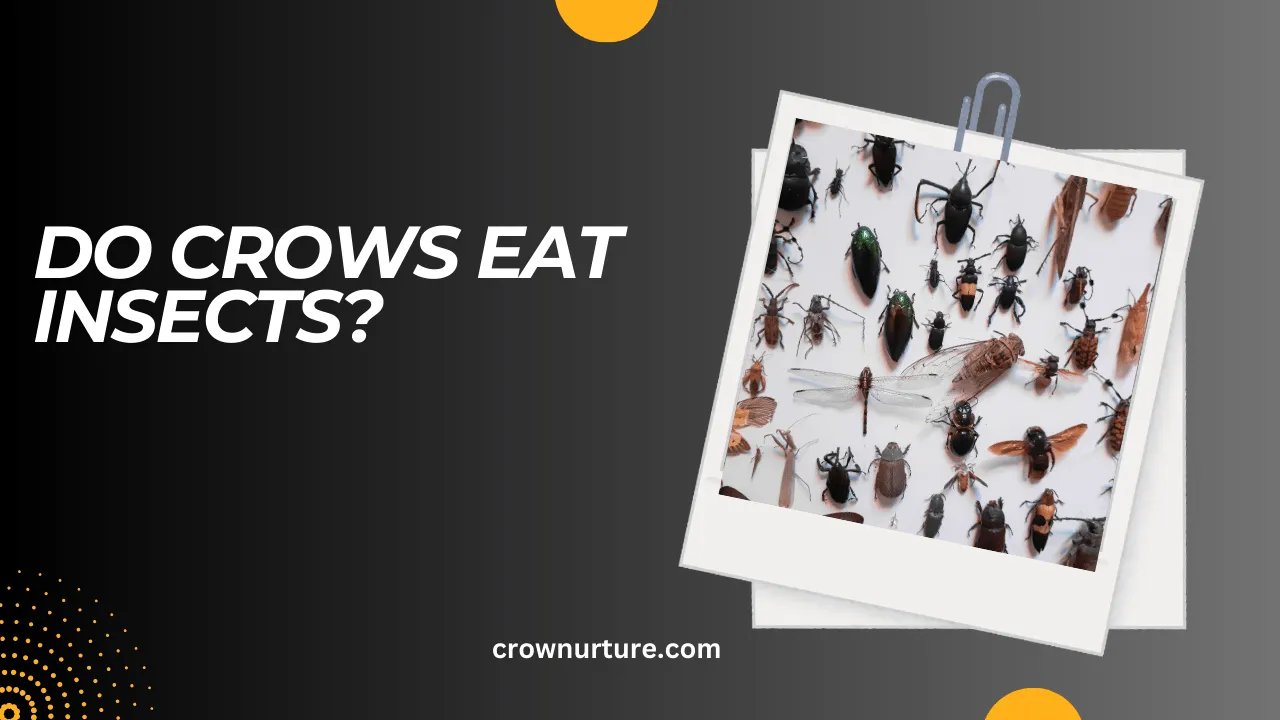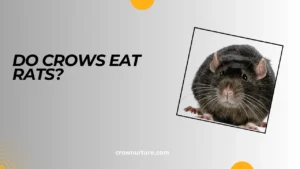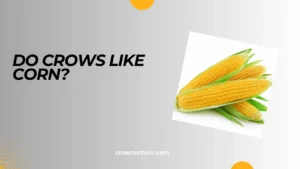Crows are often hailed as intelligent and adaptable birds, with their striking black feathers and mischievous behavior making them a familiar sight in both urban and rural areas.
But what is it that truly sustains these remarkable birds? One often overlooked aspect of their diet is the wide variety of insects they consume.
While crows are famously omnivores, capable of eating everything from seeds and fruits to small vertebrates, insects form a significant and often essential part of their diet. Understanding this is key to appreciating the role crows play in ecosystem health and their ability to thrive in a variety of environments.
In this article, we will explore how insects fit into the diet of crows, why they are so important, and how this dietary habit influences both crow survival and the broader ecological balance.
From the types of insects crows prefer to how they hunt, we’ll uncover the fascinating relationship between crows and insects.
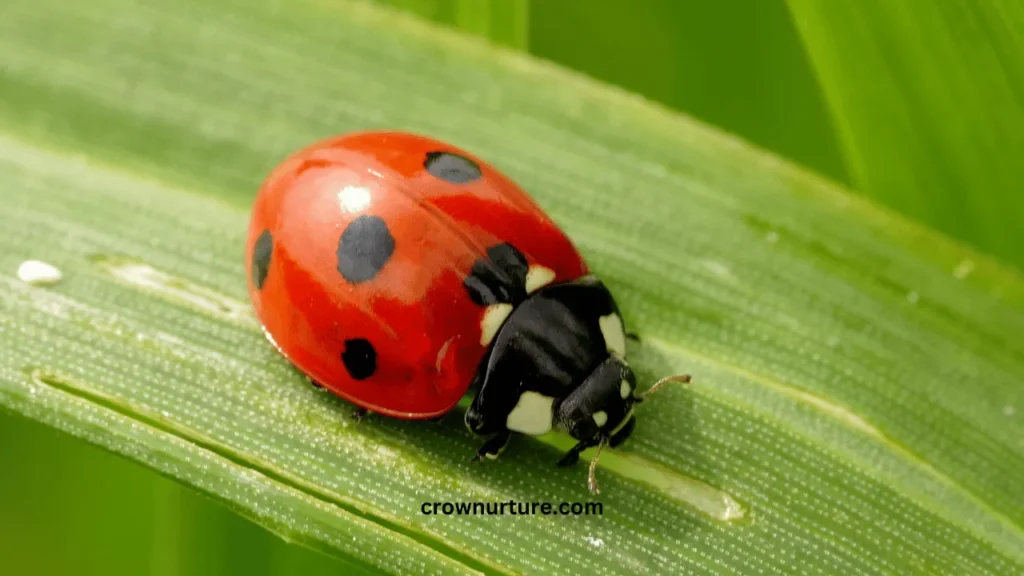
Contents
1. The General Diet of Crows
Crows are omnivores, meaning they eat both plant and animal matter. This adaptability allows them to thrive in a variety of environments, from forests to bustling cities.
Their diet is incredibly diverse, and it includes not only seeds, fruits, and nuts, but also carrion, small vertebrates, and even human food scraps. This varied diet helps them survive in diverse habitats and seasons, always finding something nutritious to eat.
While crows do enjoy plant-based foods, they are also skilled hunters of small animals, and insects are an important part of their diet, especially in areas where other food sources may be scarce.
2. Insects as a Primary Food Source
Insects make up a large portion of a crow’s diet, particularly during the warmer months when insects are abundant. Crows have access to a wide variety of insect species, including beetles, grasshoppers, crickets, caterpillars, and even spiders.
Seasonal variations in food availability mean that during the breeding season, crows often increase their consumption of insects to meet the increased nutritional demands of raising young. Insects provide essential protein and nutrients that support both growth and reproduction.
Whether in grasslands, forests, or urban areas, crows will hunt and forage for insects, adapting their diet based on what is most available at the time.
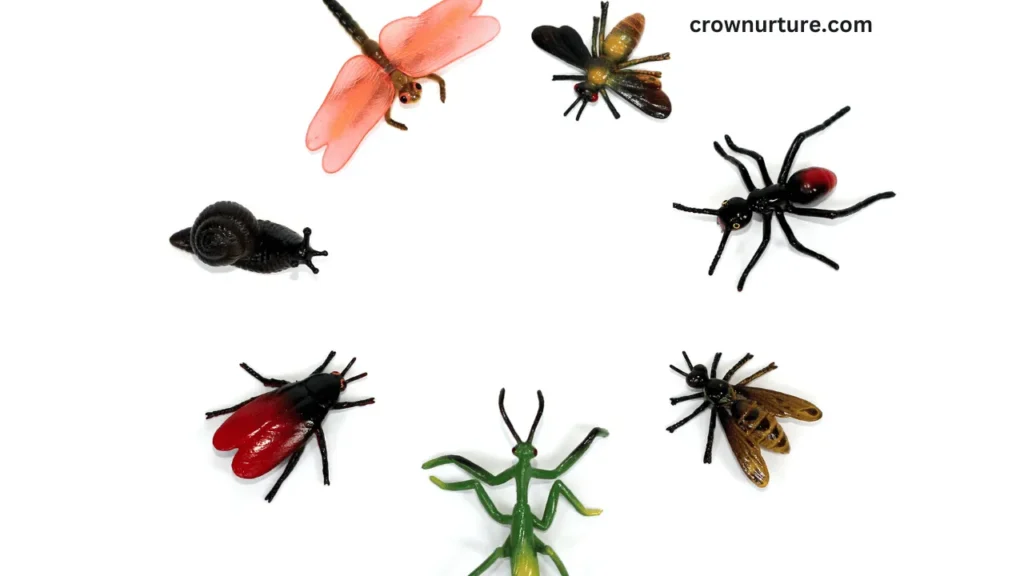
3. The Role of Insects in Crow Nutrition
Insects provide high-quality protein, which is essential for growth, muscle development, and overall health. This is particularly important during the breeding season, when crows require extra energy for themselves and their young.
Aside from protein, insects also offer energy from fats and carbohydrates, which helps crows maintain their stamina, particularly when food is less abundant. The nutrient balance that insects provide makes them a crucial part of a crow’s diet.
These nutritional benefits are vital for survival and reproduction, making insects one of the primary food sources for crows, especially in the warmer months when they are most abundant.
4. The Impact of Crow Insect Consumption on Ecosystems
Crows’ consumption of insects has a direct impact on pest control, benefiting both agricultural and urban environments. By feeding on insect pests, crows help reduce the populations of insects that could otherwise damage crops and plants.
Additionally, crows play an important role in seed dispersal, inadvertently transporting seeds while foraging for insects. This helps maintain plant diversity and contributes to the overall health of ecosystems.
Crows are integral to the food chain, and their predation on insects supports a natural balance, keeping the populations of pests in check while ensuring that the ecosystem remains healthy.
5. Adaptations for Insect Hunting
Crows are adept hunters, using their sharp beaks and keen vision to locate and capture insects. Their excellent eyesight helps them spot insects from afar, making them efficient predators.
Their intelligence also plays a role in their success as hunters. Crows are capable of learning new strategies for capturing insects, such as using tools or collaborating with others. Their ability to adapt to their environment gives them a hunting advantage.
Furthermore, crows are opportunistic feeders, meaning they will often take advantage of available resources, whether that means snatching insects from the ground or finding hidden prey in trees or bushes.
Conclusion
Crows are much more than their mischievous reputation; they play an important role in maintaining ecological balance by consuming a wide variety of insects. Their diet is diverse and adaptable, allowing them to thrive in different environments and seasons.
Insects, in particular, are a vital source of protein and energy for crows, contributing significantly to their survival and reproduction. By consuming insects, crows not only support their own nutritional needs but also provide valuable ecosystem services such as pest control and seed dispersal.
Understanding the connection between crows and insects enhances our appreciation for these remarkable birds and their impact on the natural world.
FAQs
1. Do crows eat specific types of insects?
Yes, crows consume a wide variety of insects, including beetles, grasshoppers, crickets, caterpillars, and spiders.
2. Do crows harm beneficial insects?
While crows may consume some beneficial insects, their overall impact on insect populations is generally positive, as they mainly target pest species.
3. How do crows find insects?
Crows use their keen vision to spot insects. They also employ their intelligence to adapt and locate prey in various environments.
4. Do crows eat insects during winter?
Crows’ insect consumption decreases during winter when insects are less abundant, but they adapt by consuming other food sources such as seeds, fruits, and carrion.
5. Can I attract crows to my garden to control pests?
Yes, by providing food and water, you can attract crows to your garden, but keep in mind they may also consume other organisms.
6. Are crows a threat to other bird species?
While crows can be aggressive towards other birds, especially during breeding season, they generally do not pose a significant threat to bird populations.

